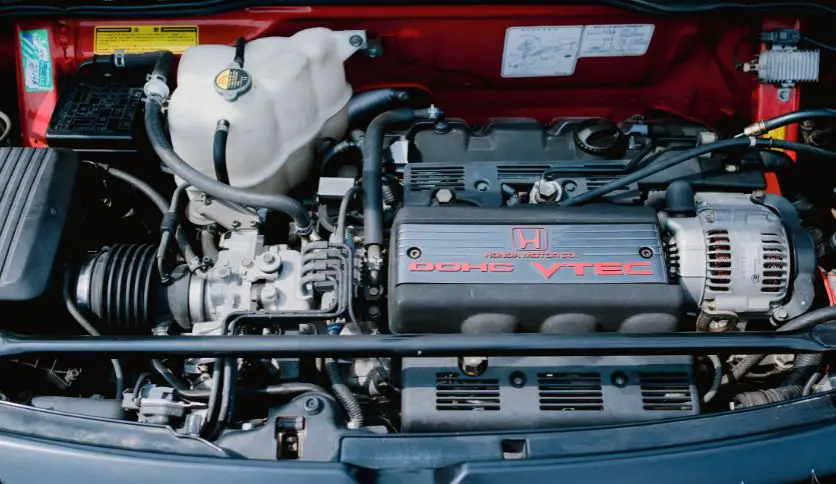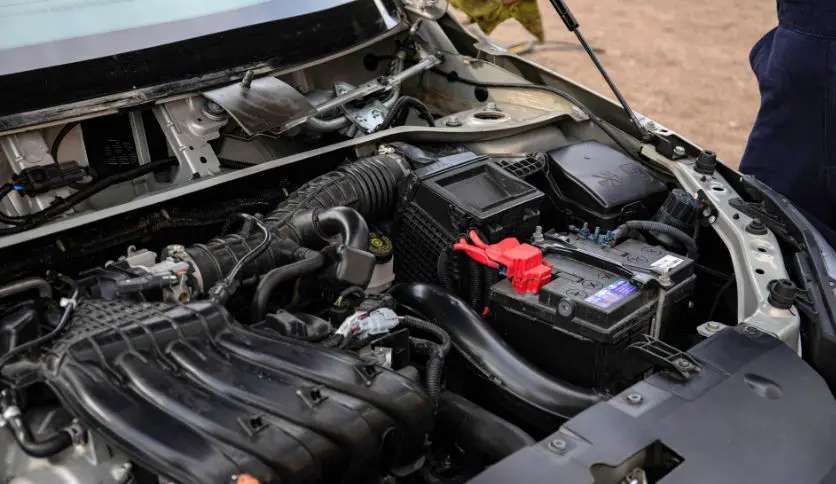If your car starts after disconnecting and reconnecting the battery, it may indicate a worn-out or faulty ignition switch. This issue can be resolved by replacing the ignition switch ensuring your car starts reliably every time.
Car trouble can be frustrating, especially when your vehicle refuses to start. One peculiar scenario is when your car begins after disconnecting and reconnecting the battery. This unexpected behavior could indicate an underlying problem with the ignition switch. The ignition switch, a vital component for initiating the car’s electrical system, can become worn out or faulty over time.
We will explore why this issue occurs and guide you on how to fix it. Understanding the potential causes and solutions for this problem ensures your vehicle starts consistently and avoids future inconvenience.
Contents
- 1 The Mystery Behind Power Restoration
- 2 Investigating Battery Disconnect Benefits
- 3 Troubleshooting Starting Problems
- 4 Enhancing Battery Life And Health
- 5 Deeper Insights Into Electrical System Resets
- 6 Preventative Measures For Electrical Integrity
- 7 Analyzing The Role Of Battery In Car Start-up
- 8 Advanced Tips For Experienced Drivers
- 9 Common Myths About Car Batteries And Resets
- 10 Frequently Asked Questions Of Car Starts After Disconnecting And Reconnecting Battery
- 11 Conclusion
The Mystery Behind Power Restoration
It may seem mysterious when a car starts after disconnecting and reconnecting the battery, but understanding how a reset impacts electrical systems can shed some light on this phenomenon. When a car battery is disconnected, it acts as a ‘soft reset’ for the vehicle’s electrical systems. This can help to diagnose issues that cause power drain by resetting the electronic control units (ECUs) of various components like the engine, transmission, or infotainment systems.
If a car experiences a power drain or unexplained electrical issues, disconnecting and reconnecting the battery can be an effective troubleshooting step. This process can reset any electronic glitches or faults causing the problem. However, it is essential to remember that a reset may not necessarily fix all issues, and further diagnostics may be required if the problem persists.
Investigating Battery Disconnect Benefits

Disconnecting and reconnecting your car battery can have several benefits. One important benefit is the preservation of your vehicle’s electronic memory. When a car battery is disconnected, the vehicle’s electronic systems lose their power source, causing the memory to reset. This can result in losing important settings such as radio presets, seat positions, and climate control settings.
On the other hand, reconnecting the battery can also positively affect your car. When reconnected, the battery can spark electrical component checks, ensuring that all systems function properly. This can help detect and resolve potential issues before they become more serious problems.
Another potential benefit is the possible improvement in car performance. Disconnecting and reconnecting the battery may reset the car’s onboard computer, allowing it to recalibrate and optimize engine performance. This can result in smoother acceleration, better fuel efficiency, and improved driving experience.
| Potential Benefits of Battery Disconnect |
|---|
| Preservation of the vehicle’s electronic memory |
| Spark electrical component checks |
| Possible improvement in car performance |
Troubleshooting Starting Problems
Having trouble starting your car? If your car starts after disconnecting and reconnecting the battery, there may be an issue with the electrical system. Troubleshooting this problem is essential to ensure your vehicle starts reliably.
Identifying Common Factors Leading To Starting Issues
Experiencing starting problems with your car can be frustrating, but a few common factors could contribute to the issue. Here’s a step-by-step guide to safely disconnecting and reconnecting a car battery and when to seek professional assistance.
Step 1: Ensure the ignition is off and the key is out. Locate the battery and use a wrench to loosen the negative (-) terminal cable.
Step 2: Do the same for the positive (+) terminal cable once the negative cable is disconnected.
Step 3: Inspect the battery connections for any signs of corrosion or damage. Clean the terminals if necessary.
Step 4: After inspecting, reconnect the positive cable first, followed by the negative cable.
Remember to tighten the terminal cables securely to ensure a good connection.
If you are unsure about disconnecting and reconnecting the battery or if the starting problem persists after doing so, it is recommended that you seek professional assistance. A qualified mechanic can diagnose and repair any underlying issues causing the starting problem.
Enhancing Battery Life And Health
The functionality of a car can be greatly affected by the condition of its battery. One important aspect to consider is the connection between the battery and the car. A clean battery connection is crucial for the car to start and run smoothly. To maintain battery longevity, it is important to avoid common mistakes that can damage the battery. Firstly, it is essential to regularly check and clean the battery terminals, ensuring a tight and secure connection. This will prevent corrosion or buildup that can hinder the battery’s performance. Secondly, it is advisable to avoid leaving the car lights or any electrical devices on when the engine is not running, as this can drain the battery. It is also recommended to limit the use of electrical devices when the engine is off to preserve battery power. Lastly, extreme temperatures can harm the lifespan of a battery. Protecting the battery from extreme hot or cold conditions can significantly enhance its longevity. By following these tips and maintaining a clean battery connection, you can ensure the health and longevity of your car battery.
Deeper Insights Into Electrical System Resets
Resetting the battery can significantly impact the car’s electrical control unit (ECU). The ECU manages the car’s adaptive settings, which help optimize performance based on various sensors and inputs. When the battery is disconnected and reconnected, it initiates a reset process, wiping out the stored adaptive settings and triggering a relearning process.
This reset process allows the ECU to recalibrate and relearn various parameters, such as air/fuel mixture, idle speed, and throttle response. It also clears any error codes that may have been stored in the system.
However, it is important to note that resetting the battery is not always necessary. In cases where the battery is discharged and recharged, disconnecting and reconnecting it is not required. Recharging the battery will restore capacity without affecting the ECU’s adaptive settings.
| Reset | Recharge |
| Clears adaptive settings | Restores battery capacity |
| Triggers relearning process | Does not affect ECU settings |
| Clears stored error codes | – |
Understanding the difference between resetting and recharging the battery can help car owners determine the appropriate course of action depending on their specific situation and avoid unnecessary ECU resets.
Preventative Measures For Electrical Integrity
Regular maintenance checks are essential to ensure the electrical integrity of your car. One of the most important aspects of these checks is inspecting the battery terminals. Battery terminal inspections help identify any corrosion or loose connections that can lead to power issues. By regularly checking and cleaning the terminals, you can prevent startup problems and ensure the smooth functioning of your vehicle.
Another preventative measure to consider is upgrading your battery. Upgrading your battery to a higher quality or higher capacity option can enhance performance and reliability. A superior battery will provide better starting power, improved electrical output, and increased durability. This can be particularly beneficial if your car has high power demands or if you live in extreme weather conditions.
Taking these preventative measures can help you avoid power-related problems with your car. Regularly inspecting battery terminals and considering battery upgrades are simple yet effective steps toward maintaining the electrical integrity of your vehicle.
Analyzing The Role Of Battery In Car Start-up
When the car starts after disconnecting and reconnecting the battery, it is essential to analyze the role of the battery in the car start-up process. Understanding how the battery affects the vehicle’s ignition system can help diagnose and address any related issues effectively.
The Science Behind How Car Batteries Assist In Engine Ignition
Car batteries play a crucial role in the start-up process of engines. When you turn the ignition key, an electrical current runs from the battery to the starter motor, crushing the engine. This process is possible due to the chemical reactions inside the battery, where electrolytes facilitate the movement of electrons between the positive and negative terminals. Supplying the necessary electrical power, the battery enables combustion in the cylinders, and the subsequent combustion gases drive the pistons, initiating engine ignition.
Disconnecting and reconnecting the battery can sometimes help start a car, but it is essential to understand the alternative reasons behind this phenomenon. While a battery reset may reset the vehicle’s electrical systems, it can also recalibrate sensor values, resolve software glitches, and address minor electrical issues. If there are underlying mechanical or electrical problems causing starting issues, it is crucial to address them to avoid further complications or potential damage.
Advanced Tips For Experienced Drivers
When you experience issues with your car starting, a battery reset can sometimes help resolve the problem. After disconnecting and reconnecting the battery, you can take a few fine-tuning steps to ensure peak performance of your vehicle.
| Tool | Description |
|---|---|
| Scan tool | Use a scan tool to check for any stored trouble codes that may indicate underlying issues. |
| Battery load tester | Test the battery’s power output and determine its condition using a battery load tester. |
| Alternator test | Check the alternator’s charging capacity to ensure it is functioning correctly. |
By utilizing these advanced diagnostic tools, you can uncover any lingering problems that may have contributed to the initial starting issue. Addressing these issues promptly will help maintain the performance and longevity of your vehicle.
Common Myths About Car Batteries And Resets
Debunking misconceptions about battery disconnection, it is commonly believed that disconnecting and reconnecting a car battery can solve various electrical issues. However, the reality is quite different. Contrary to popular belief, disconnecting the battery does not reset the car’s computer or fix complex problems. This is a common myth that often leads to frustration and wasted time.
Another misconception is that disconnecting the battery can improve fuel efficiency. While a weak battery can affect the performance of certain components, such as the alternator, it is not a direct solution for improving fuel economy.
It is important to understand that disconnecting the battery may have unintended consequences. For instance, it can reset certain settings and cause the need for recalibration. Additionally, some modern vehicles have complex electrical systems that may need professional diagnostics to identify and fix any issues.
Instead of relying on battery resets as a quick fix, consulting a trained mechanic or technician who can accurately diagnose and address any underlying car battery or electrical problems is recommended. Regular maintenance and timely battery replacements are vital for optimal car performance and longevity.
Frequently Asked Questions Of Car Starts After Disconnecting And Reconnecting Battery
Why Does A Car Start After Disconnecting And Reconnecting The Battery?
Disconnecting and reconnecting the battery can reset the car’s computer system. This can fix electrical issues like a dead battery or a malfunctioning sensor. However, it’s important to note that this is not a permanent solution and may only provide a temporary fix.
If you’re experiencing ongoing issues, it’s best to consult a professional mechanic.
Is It Safe To Disconnect And Reconnect A Car Battery?
It is generally safe to disconnect and reconnect a car battery. However, there are a few precautions you should take. Always wear protective gloves and goggles to prevent any accidents. Make sure to disconnect the negative terminal first and reconnect it last.
This will help avoid any sparks or short circuits. It’s best to consult a professional if you’re unsure or uncomfortable.
When Should I Consider Disconnecting And Reconnecting My Car Battery?
If you’re experiencing certain electrical issues, such as a dead battery, malfunctioning electronics, or a check engine light coming on, disconnecting and reconnecting the car battery can be a temporary solution. It can reset the computer system and potentially resolve minor issues.
However, it’s important to seek professional help if the problems persist or worsen.
Can Disconnecting And Reconnecting The Battery Damage My Car?
Disconnecting and reconnecting the battery should not cause any damage to your car if done correctly. However, it’s important to follow safety procedures and take the necessary precautions to avoid accidents. If you’re unsure or uncomfortable performing this task independently, it’s best to leave it to a professional mechanic to ensure it is done safely.
Conclusion
Disc disconnecting and reconnecting your car’s battery can sometimes solve starting issues. By doing so, you’re essentially resetting the electrical system, allowing for a fresh start. However, this temporary fix may not address the underlying problem causing the starting difficulty.
It’s always best to consult a professional mechanic to diagnose and resolve persistent issues. Keep your car in top-notch condition for smooth, hassle-free starts!

Hello, this is Wesley Shelton, currently working in a car restoration company for over 5 years. Before that, I was a worker at a small car repair shop. As I was a car freak from a young age and worked as a professional for over half a decade, I think I now know pretty much everything about every car and its parts. To establish my name as a professional and help others by sharing my knowledge, I’ve created this website, which I work on whenever I get free time. I hope you’ve enjoyed my informative blog!


